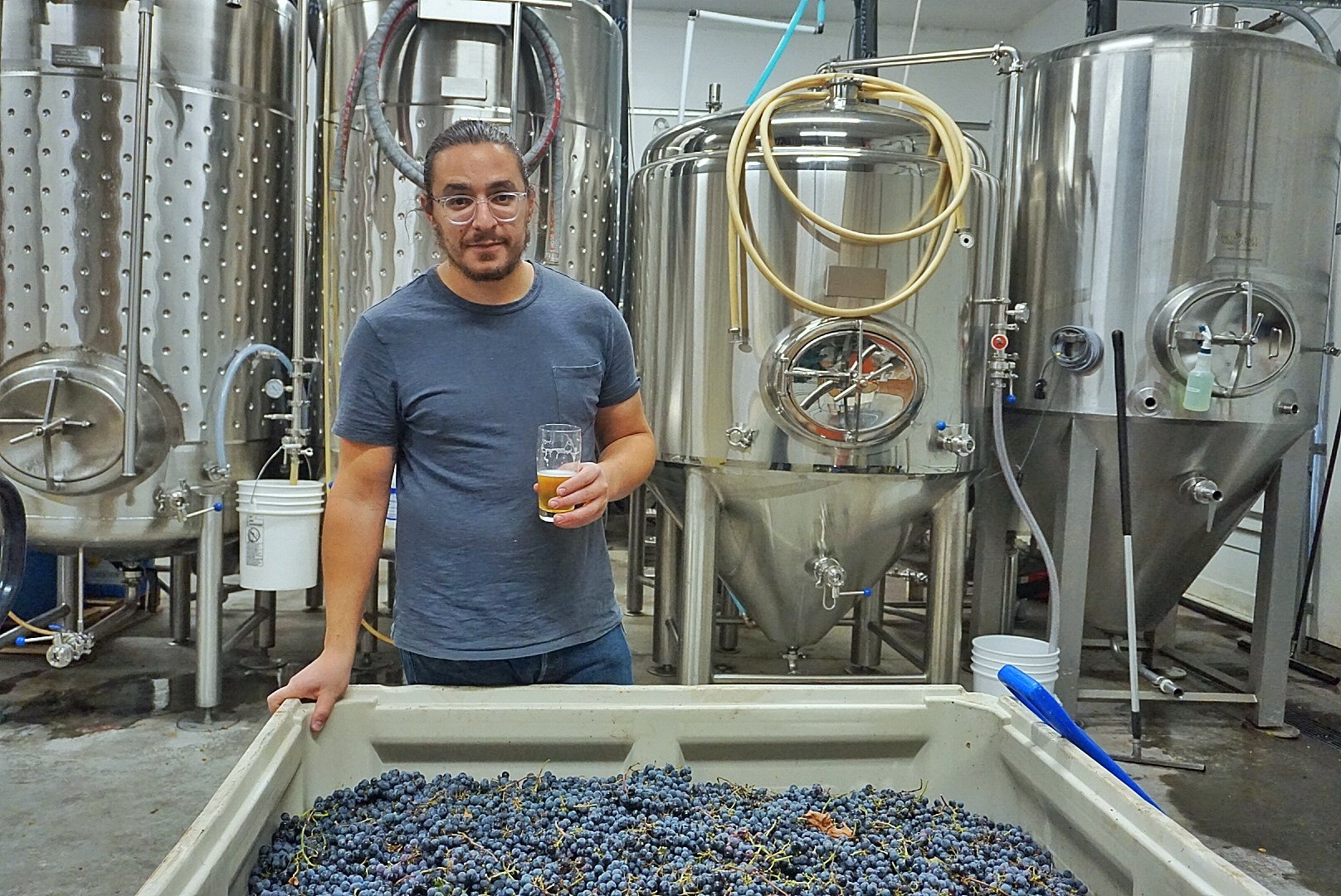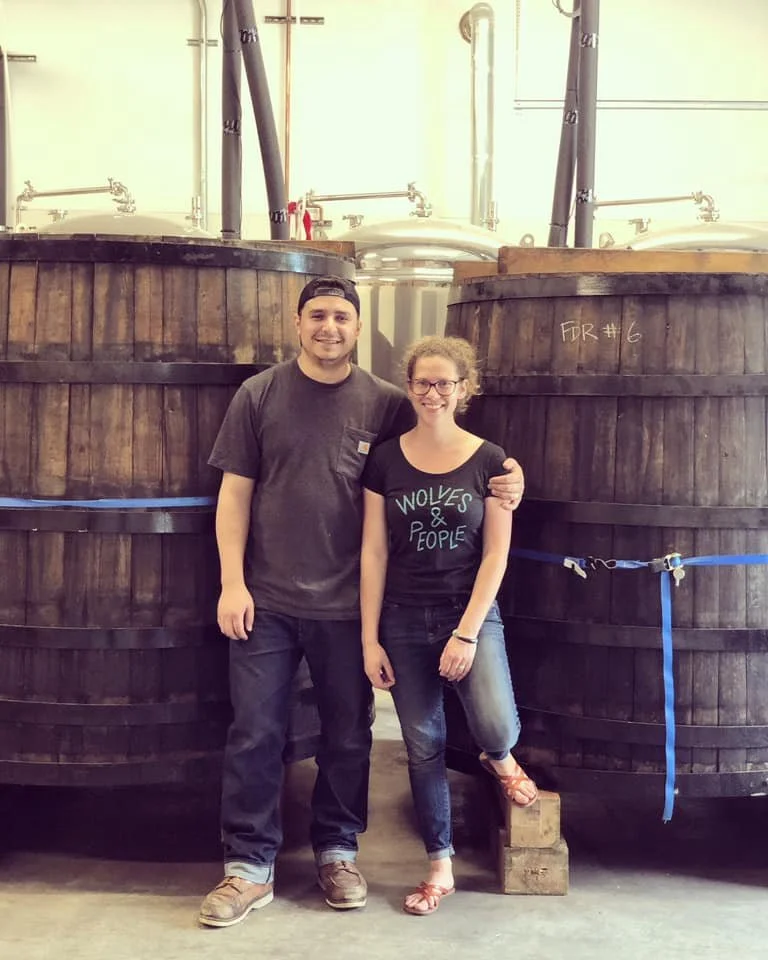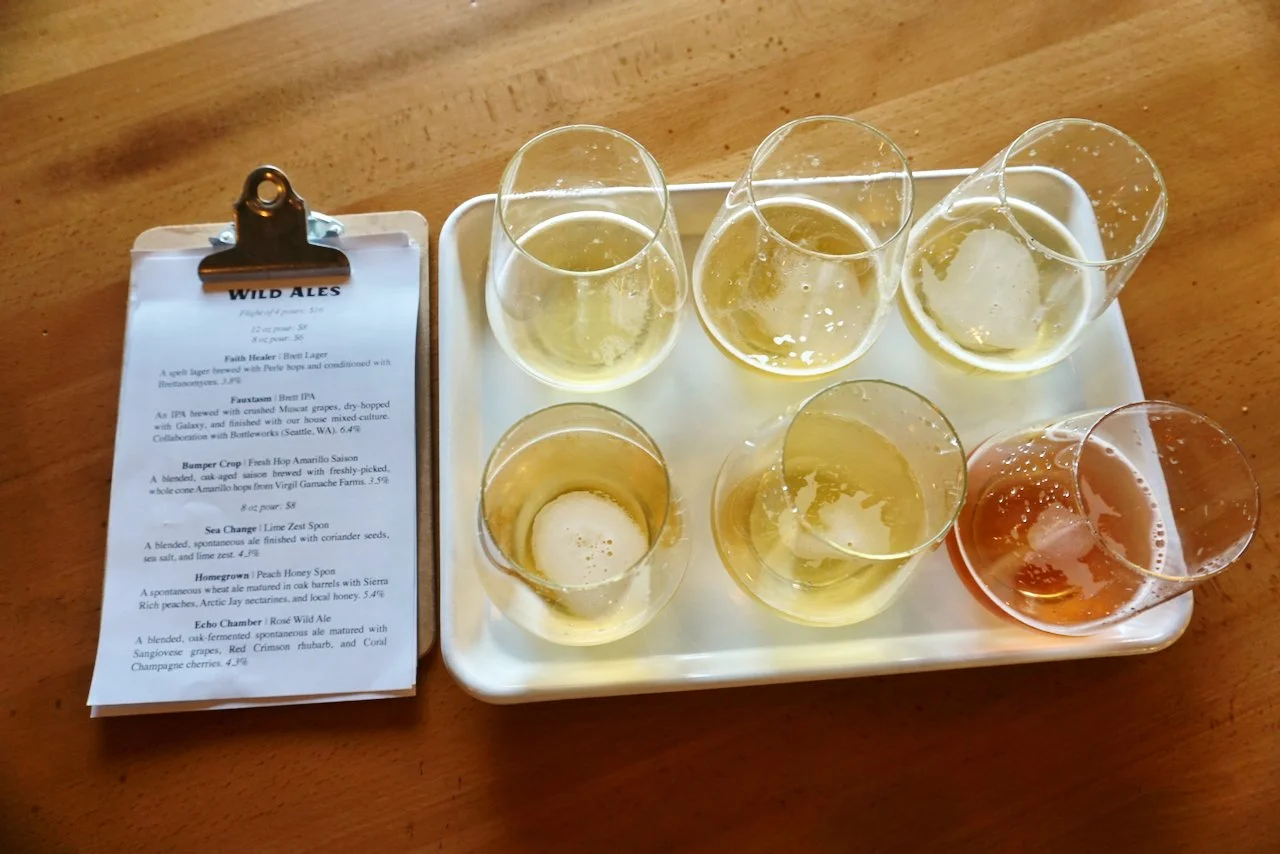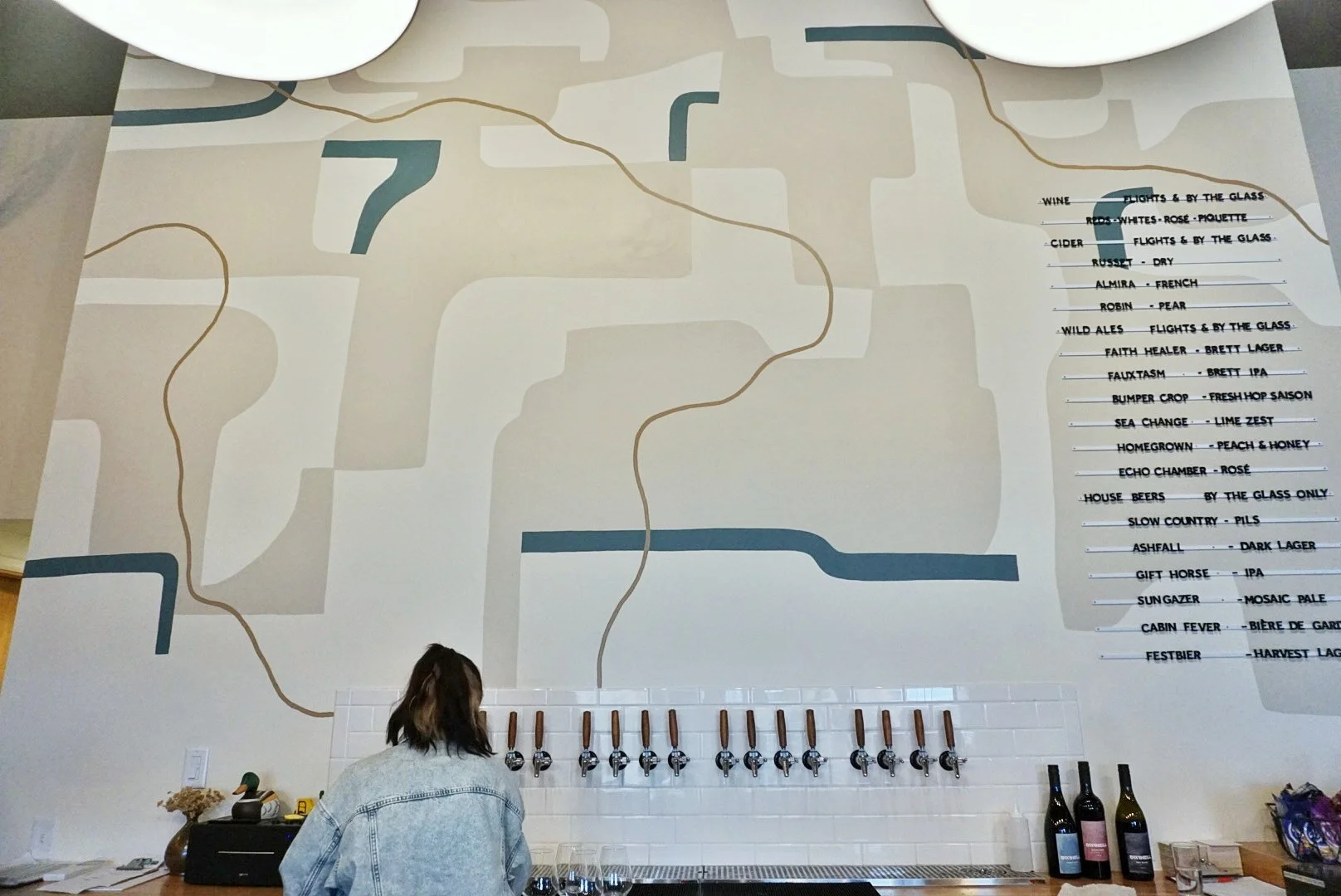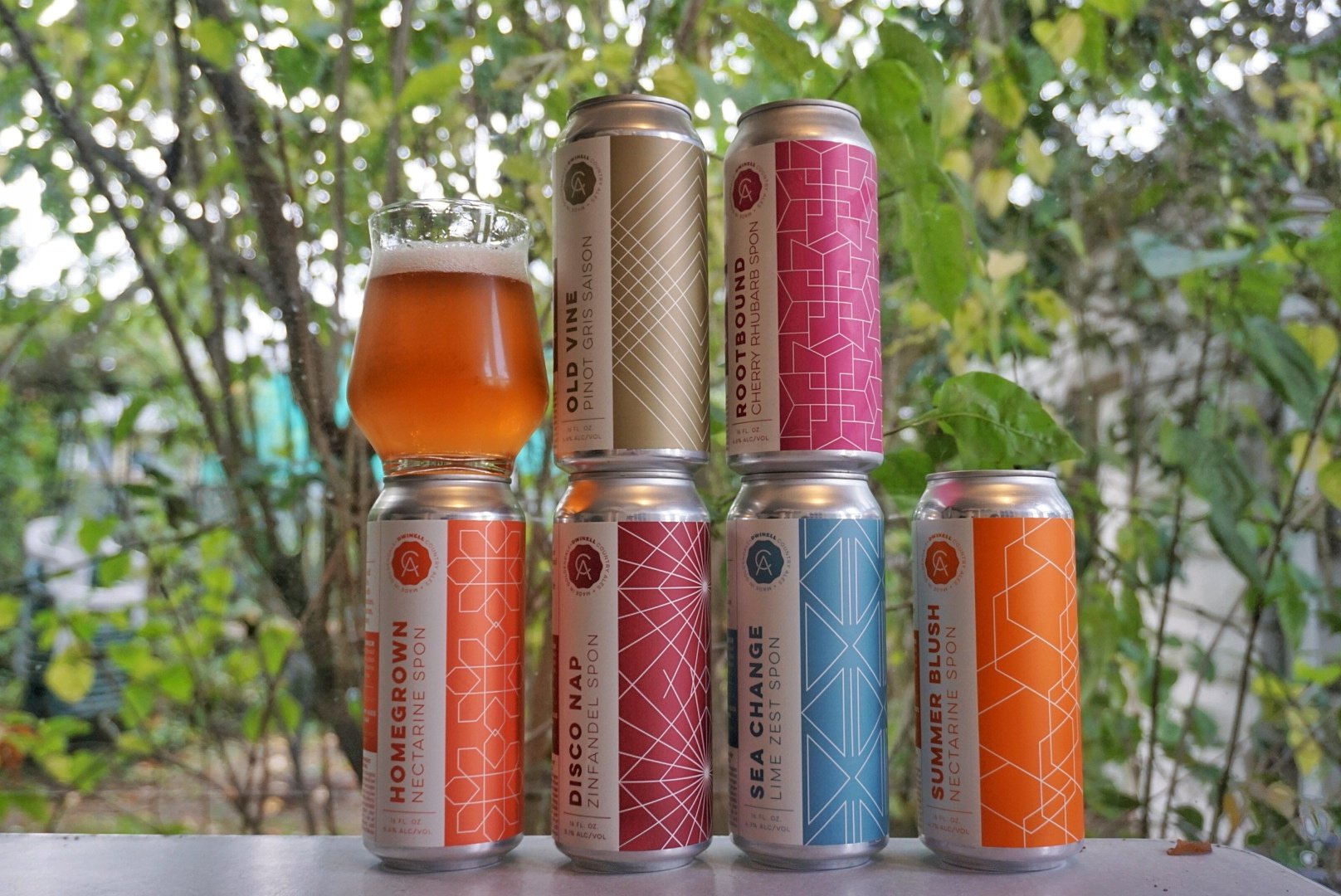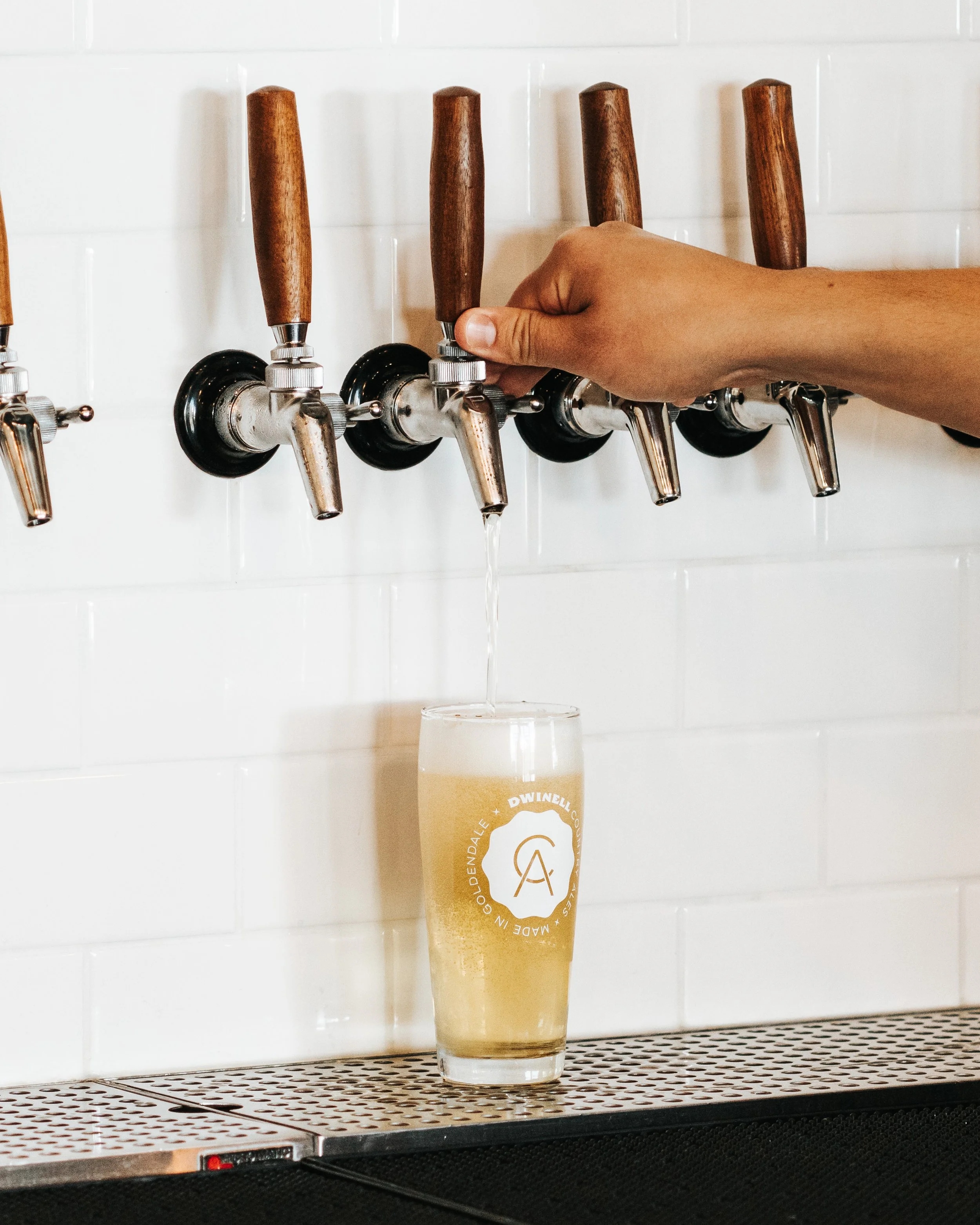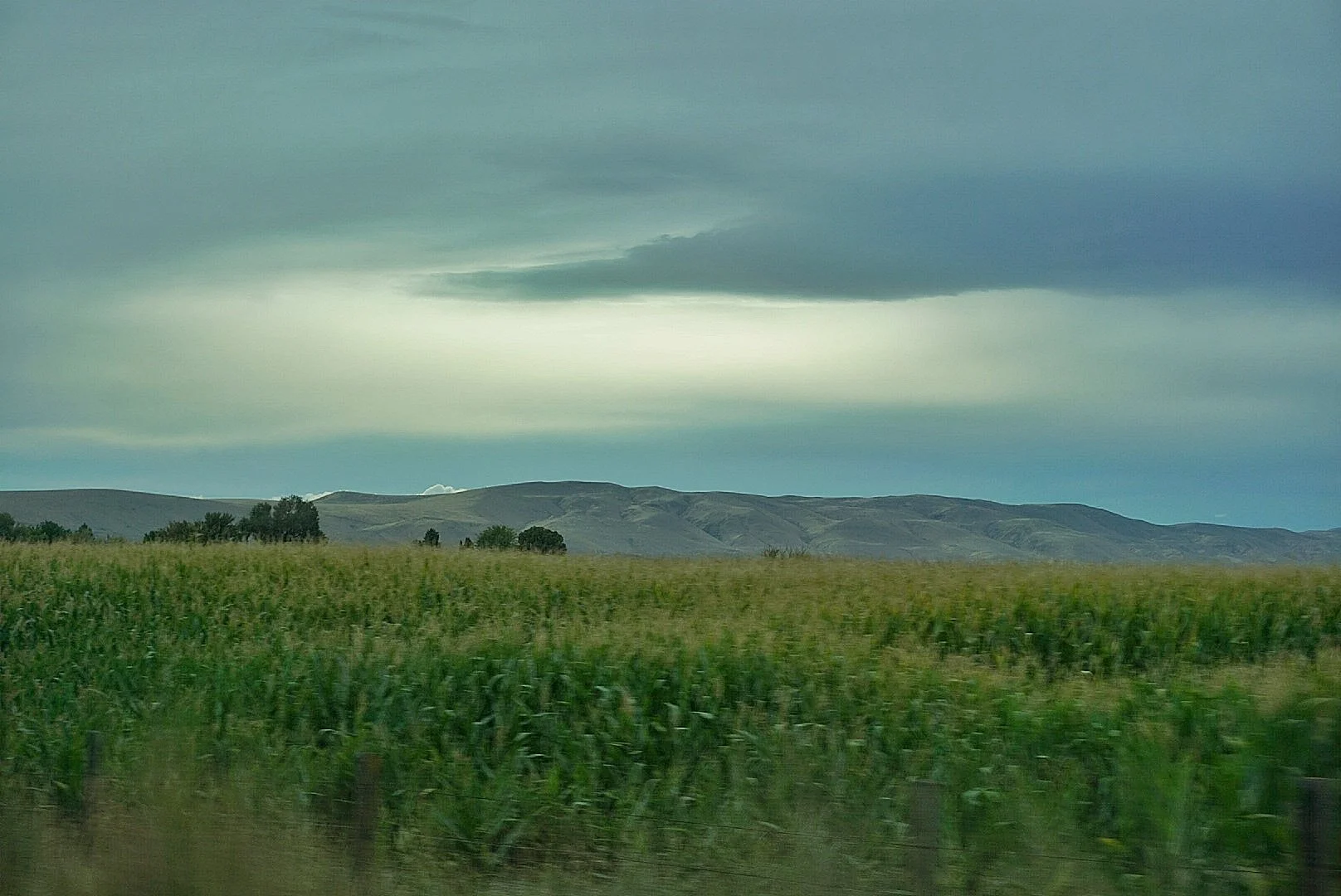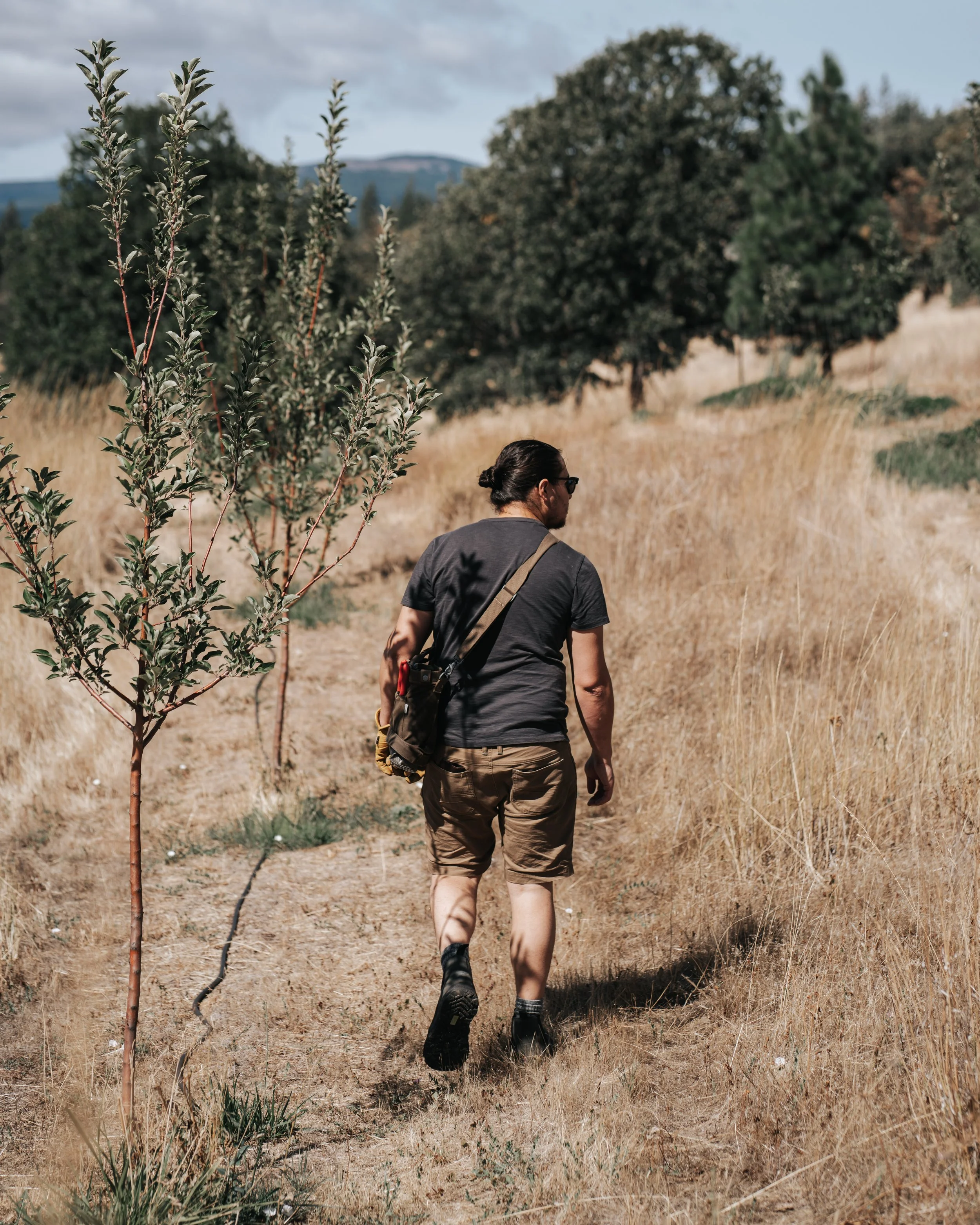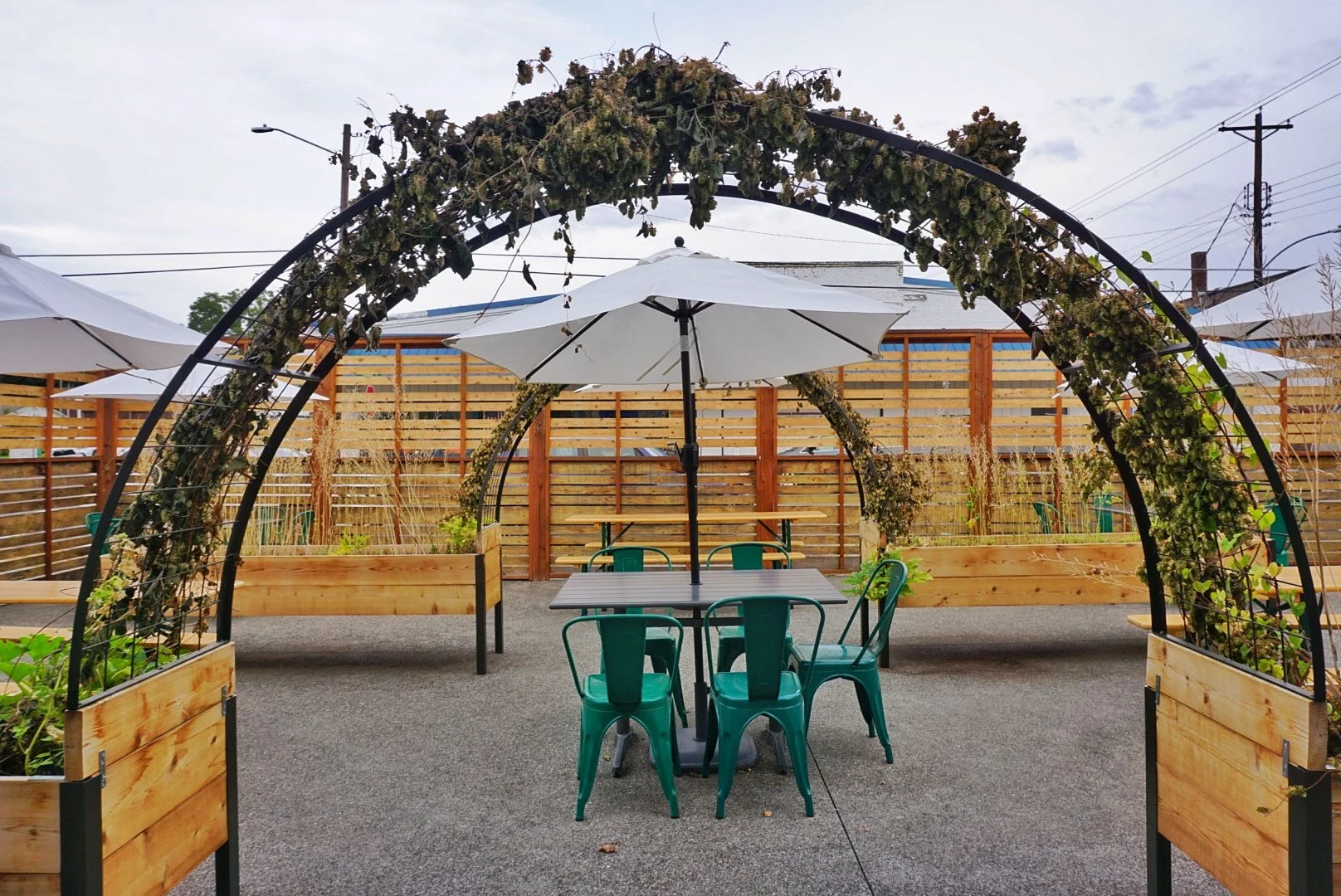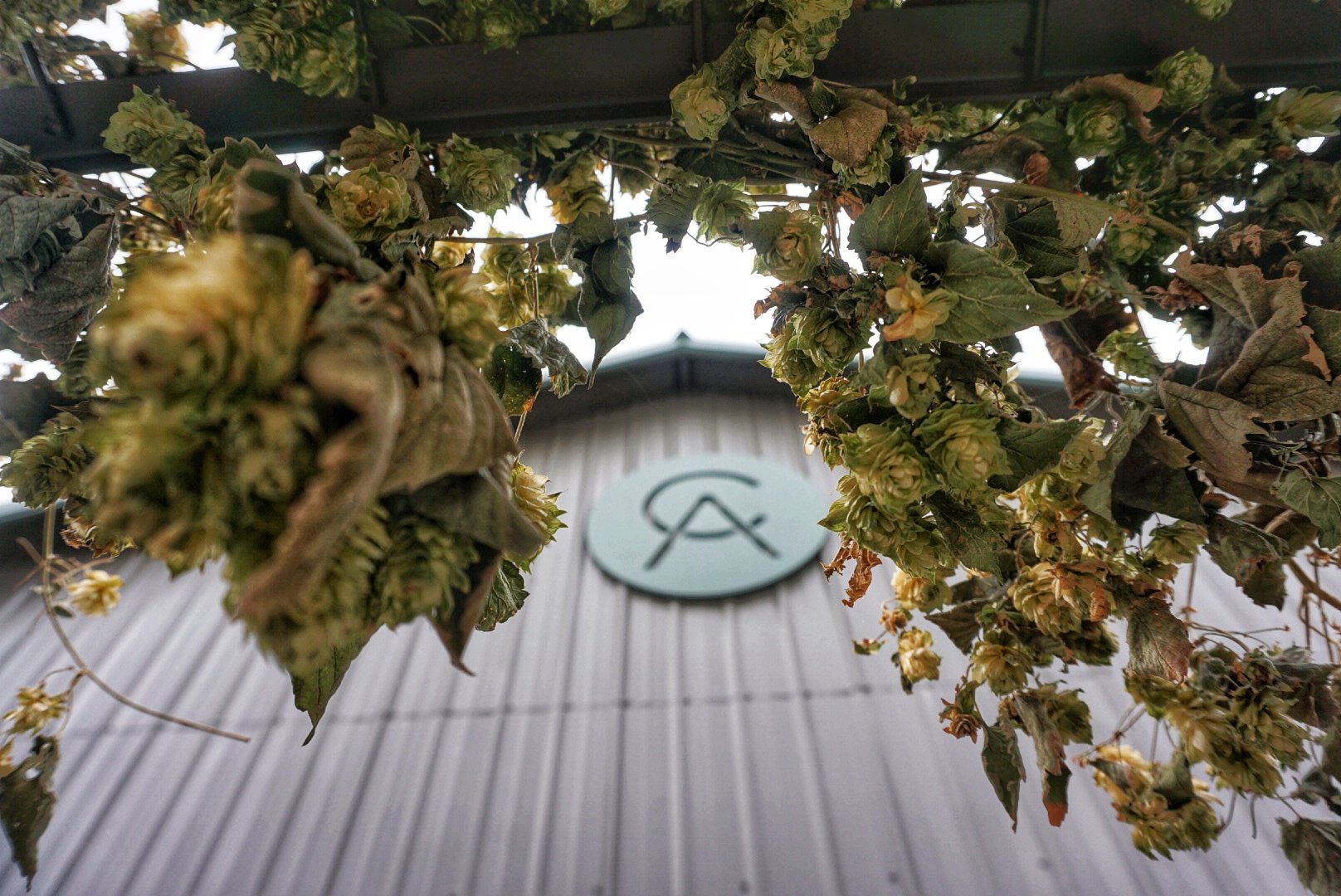How Dwinell Country Ales Found Success in the Destruction
During pandemic lockdowns many people took up baking or jigsaw puzzles, Dwinell Country Ales founder Justin Leigh took up winemaking, cidermaking, lagering, and made it his goal to “systematically dismantle or otherwise abolish the three-tier system.”
Many (most?) breweries came out of the Covid-19 pandemic limping, if not mortally wounded. Dwinell Country Ales came out stronger, forged in fire like armor. The farmhouse and saison centric brewery in the outer Washington rim of the Columbia River Gorge was always an outlier, technically a Washington brewery but closer in relationship and distance to the Portland-metro area and Oregon craft beer scene. Getting their chief audience of mixed-culture and French/Belgian beer nerds to Goldendale, Washington was always going to be difficult, but even moreso during the pandemic and with rising ingredient costs and falling popularity of the esoteric but cult favorite styles of beer.
On February 29th Washington state was the first state in the U.S. to declare a state of emergency based on COVID-19, and locked down on March 23rd, Dwinell Country Ales didn’t hesitate to shut down their taproom. But unlike other breweries and bars that relied on that in-house and on-premise consumer sales to drive the business, Dwinell turned their focus to the specialty markets that had been their most reliable fanbase from the start. The resulting introspection and changes in that period helped the brewery come out of it stronger and ready to take on a tougher more climate driven beer landscape.
Justen Leigh was a homebrewing Chicago law school graduate who wanted to work in the beer business, either as a lawyer, a business owner, or both. While working at (now defunct) Arcade Brewing, he met his future wife and Dwinell co-founder Jocelyn. After passing the bar, in 2015, they developed a business plan for a farmhouse brewery. “We were attracted to the vision of having a farm brewery and felt as though the PNW beer scene presented an opportunity for us to build a business and a life around making saison,” says Leigh
When Dwinell Country Ales opened in 2017, farmhouse breweries and those who specialized in wild yeast driven sour beers were a hot commodity even if not necessarily grocery store movers and shakers. Goldendale seemed like a great pitstop town just a short beautiful drive out of the Washington side of the gorge, in a rural area of beautiful valleys and farmland halfway between Portland and Yakima the hop capital of the world. But the Dwinell tasting room with a similar simple rustic charm as a winery, never really took off in the local community or brought in enough visitors traveling through. Combined with the contraction of the farmhouse/saison sector in craft beer as some moved on to wines, seltzers, or spirits, put breweries like Dwinell in a difficult position that pushed many to turn to hot sellers like IPA’s and smoothie beers, if not go out of business entirely.
“The farmhouse-style, mixed-culture, and brett beer category (let's call them "saison"), taken as a whole, is severely contracting. We're losing drinkers and shelf space. But I don't see this as a bad thing. To me, it presents new kinds of opportunities,” says Dwinell co-founder Justin Leigh.
For farmhouse/saison brewers, the chaos in the industry began well before the pandemic. But few took on that new seemingly unsurmountabe challenge as well as Dwinell.
“Once the pandemic started, our goal was to get our beer and cider in front of as many drinkers as possible, not only to grow our sales, but to increase awareness of our brand so that if/when we reopened our tasting room, it would be somewhat more of a travel-worthy destination,” says Leigh.
Dwinell didn’t hesitate for a moment to close the taproom, and did not even reopen their open air patio let alone the indoors for more than three full years. During that “down time” they put in the work to restructure the brewery around what they thought would be their strong suits going forward.
With less producers vying for a smaller amount of shelf space, specialty products that stayed true to the original vision become more valuable and the breweries that specialize in them have to be better than those who just dabble in the styles. Some of the breweries who just put saisons and sours out for fun, shifted to more profitable beers and left the truly dedicated to fend for a smaller piece of the leftover pie.
“This is ultimately better for consumer experience and the market's health as a whole. Even still, there's room in the market for more producers. The key, I think, is to adapt to the way consumer preference has shifted,” says Leigh. To accomplish his stated goal of making the saison an everyday-drinking beer, he tackled the problem by switching from bottles to 16oz cans for a cheaper and more approachable format, and by making the beers more consumable with more balanced levels of oak, acid, and alcohol, for drinkability sake.
But they also wanted to expand their consumer base out of the niche saison drinker, but in a way that wouldn’t feel like they were selling their soul to trends. Dwinell rebranded as Dwinell Country Cellars and launched a rustic cider program, a lager beer program, and became a winery as well. Each of these three different fermentations present their own unique challenges.
“I've found that our wine has been rather well received by wine drinkers,” says Leigh. Who has staked out a claim on natural wines, otherwise known as low-intervention wine, is organic and, free of pesticides, herbicides, and sulfites, which often tastes more wild with more farmhouse character than commercial brand traditional vino. “Tapping into the natural wine consumer base is key. On a whole, compared to other wine drinkers, they're generally more open-minded when it comes to selecting wine and typically exhibit more of a preference for fermentation-driven flavor profiles. Not only that, but I've found that these drinkers are, for the most part, predisposed to liking other wild- or naturally-fermented beverages such as beer. In this sense, when we consider the struggles of the saison market, I think there's an important opportunity to attract consumers of natural wine as a strategy for growth.”
Ironically for a brewery, mastering the vast lager category of beers may have been the most imposing for Dwinell, but judging by the first Pilsner out of the gate it was worth the considerable time put into it. Traditional lagers usually take about 6-8 weeks to produce (as opposed to 2-4 weeks for ales), Dwinell’s three different annual lagers will take about 16 weeks each.
Dwinell Country Ales first Pilsner
“Most brewers will agree that while lagers are outwardly the most simple beers, they are, at the same time, some of the most intricate and challenging to make. Natural fermentations of pressed fruit like wine and cider are similar in that way, but, in my opinion, are more complex and challenging due to a heightened degree of variability of the raw materials (including on a microbial level). Some might call this terroir.”
All the off time of not operating a tasting room paid off in other ways, Justin and Jocelyn Leigh had a little more time to cultivate meaningful relationships with growers, who provide the foundational fruit for their cider, wine, and fruited saisons. But they also reinvested in establishing their own orchard in 2020, and are now farming about 120 cider apple and pear trees on a small plot less than two miles from our brewery.
Though he strayed from his background practicing the law, trying to sell their beer direct-to-consumer and unable to self-distribute across the state line during the pandemic, pulled Justin Leigh back into the legal system. Realizing how prohibitive and unfriendly most state laws were towards breweries specifically, drew him into litigation he had been ruminating on for awhile. The three-tier system, set up when prohibition was abolished, is still the basis for federal law that establishes a separation between producer, distributor, and retailer, which is unfriendly and often unfair to small business. Breweries are often locked into distribution systems that they have little control over once they sign on, leaving some feeling a loss of control and lack of options for getting their product to consumers.
“I'd like to do away with state-level distribution franchise laws, which, like the three-tier system, are legal frameworks that have been developed to favor the middle distribution tier in a way that stifles competition and abridges consumer choice,” says Leigh. “I think it's important to modernize the alcohol excise tax structure. Rates should be based on alcohol content and not the product itself. Taxing products differently is just a backdoor way for legislatures to engage In economic protectionism/discrimination.”
In 2022, Leigh announced a lawsuit brought about by fellow Washington breweries Fortside Brewing, Garden Path Fermentation, and Mirage beer Co., to challenge the state of Oregon on their laws pertaining to out-of-state breweries self-distribution and DTC. The already landmark lawsuit was expected to take years to run through the courts, but instead was settled only a year later with a Washington brewery victory. Leigh was an organizer and expert witness in the suit, but not a plaintiff.
That lawsuit and their victory has motivated Leigh and the two lead lawyers Bob Epstein and Alex Tanford, to pursue similar cases throughout the country. In August, Dwinell Cellars teamed up with Sunnyside, Washington’s Varietal Beer Co. to file a similar lawsuit against the state of Idaho.
Justin Leigh
“The overarching goal is to bring enough similar lawsuits that they'll get consolidated and granted certiorari to SCOTUS, where we would undoubtedly prevail based on how the current majority has ruled on similarly-situated cases,” says Leigh, who has now joined Epstein and Tanford as co-counsel in a DTC lawsuit brought by a New York distillery against Washington State, who Leigh says is fighting tooth and nail for “their ability to economically discriminate against out-of-state businesses.”
Untangling the three-tier-system is an epic project in itself, a passion project that Leigh and company pursue that may have been impossible when running a year-round taproom that proved unfeasible from the start. When the time came to reopen their taproom last May, it had been 38 months since they last operated as more than a pickup destination. Dwinell Country Ales (and Cellars) closed again for the winter in October, this time it wasn’t a pandemic or a forced pause of any kind, but a way to regroup, recharge, take stock, and reenergize the company during a slow winter. While many breweries would find a similar closure impossible in more urban landscapes and different business models, but in this instance it works efficiently and effectively.
Recently Dwinell received fresh pressed juice for their 2023 harvest ciders, which will ferment through the winter. As the temperatures continue to precipitously drop, they will start filling their coolship for spontaneous fermentations. After that they will begin blending and packaging beers that were fruited during the summer, and bottling up white and rosé wines from the 2023 wine harvest.
Typically, breweries slowest sales periods are during the winter and especially the very beginning of the year post-holidays. But with a new sales rep and closer attention to their most valuable customers and markets, as well as a larger portfolio that includes their wine, cider, and some wintery saisons (including one that aged in Nocino barrels from Stonebarn Brandyworks), Dwinell is optimistic that their taprooms winter hibernation will have the company emerging recharged in 2024.
As luck would have it, Dwinell will briefly awaken from their winter slumber to open their tasting room for holiday sales on Thanksgiving weekend, November 24 - 26, from 12-6pm. The taroom is open for guests those hours, kids, and leashed dogs are welcome, and they will offer 30% off growler fills. The taproom won’t reopen for regular hours until the spring of 2024, but you can reserve a table for a private tasting or place an order online to pick up beer, cider and wine to-go.
DWINELL COUNTRY ALES
206 W Broadway St, Goldendale, WA 98620


